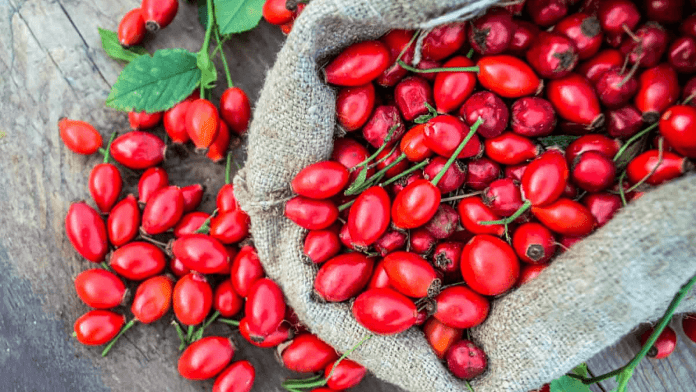News in Brief:
– Global rosehip market is projected to reach $486.7 million by 2034, driven by demand for its health benefits and applications in herbal teas and cosmetics.
– Local farmers are presented with opportunities to capitalise on rising demand, particularly in regions like East Asia, by cultivating rosehip and tapping into diverse market segments.
According to a report by Fact.MR, an independent publisher of market research reports, the Rosehip market is on a trajectory of significant growth, with projections reaching $486.7 million by 2034.
The current market stands at $ 282.6 million for 2024, exhibiting a robust expansion at a compound annual growth rate (CAGR) of 5.6% over the next decade. Let’s delve into how this market surge is set to impact farmers, particularly in regions like North America and East Asia:
1. Health boom fuels demand
The increasing awareness of rosehip’s medicinal and nutritional properties is driving a surge in demand. Consumers are seeking natural remedies, creating a lucrative market for products containing rosehip. For local farmers, this translates to a growing demand for rosehip cultivation to meet the market needs.
2. Rosehip shells: a tea-time favourite
Rosehip shells are not just adding flavor to herbal teas; they’re also packing a punch with high levels of vitamins and antioxidants. As the global herbal tea trend continues to rise, so does the demand for rosehip shells. Local farmers can seize this opportunity by expanding their rosehip cultivation to cater to the tea industry.
3. Cosmetics craze
The cosmetic industry’s shift towards natural ingredients is amplifying the demand for rosehip extracts. Consumers are gravitating towards skincare products boasting natural and botanical ingredients. For local farmers, this presents an avenue to capitalise on the growing demand for rosehip in cosmetics, contributing to their revenue streams.
4. Regional market dynamics
In North America, where the market is estimated to hold a significant share, local farmers can leverage the rising demand for plant-based supplements and skincare products. Similarly, in East Asia, particularly in South Korea, the projected market expansion presents opportunities for farmers to tap into the growing demand for rosehip.
5. Market segmentation insights
Understanding market segmentation, including nature, type, and end use, can guide local farmers in tailoring their cultivation practices to meet specific market demands. Whether it’s organic rosehip for the health-conscious consumer or rosehip oil for cosmetic formulations, farmers can adapt to the evolving market landscape.



